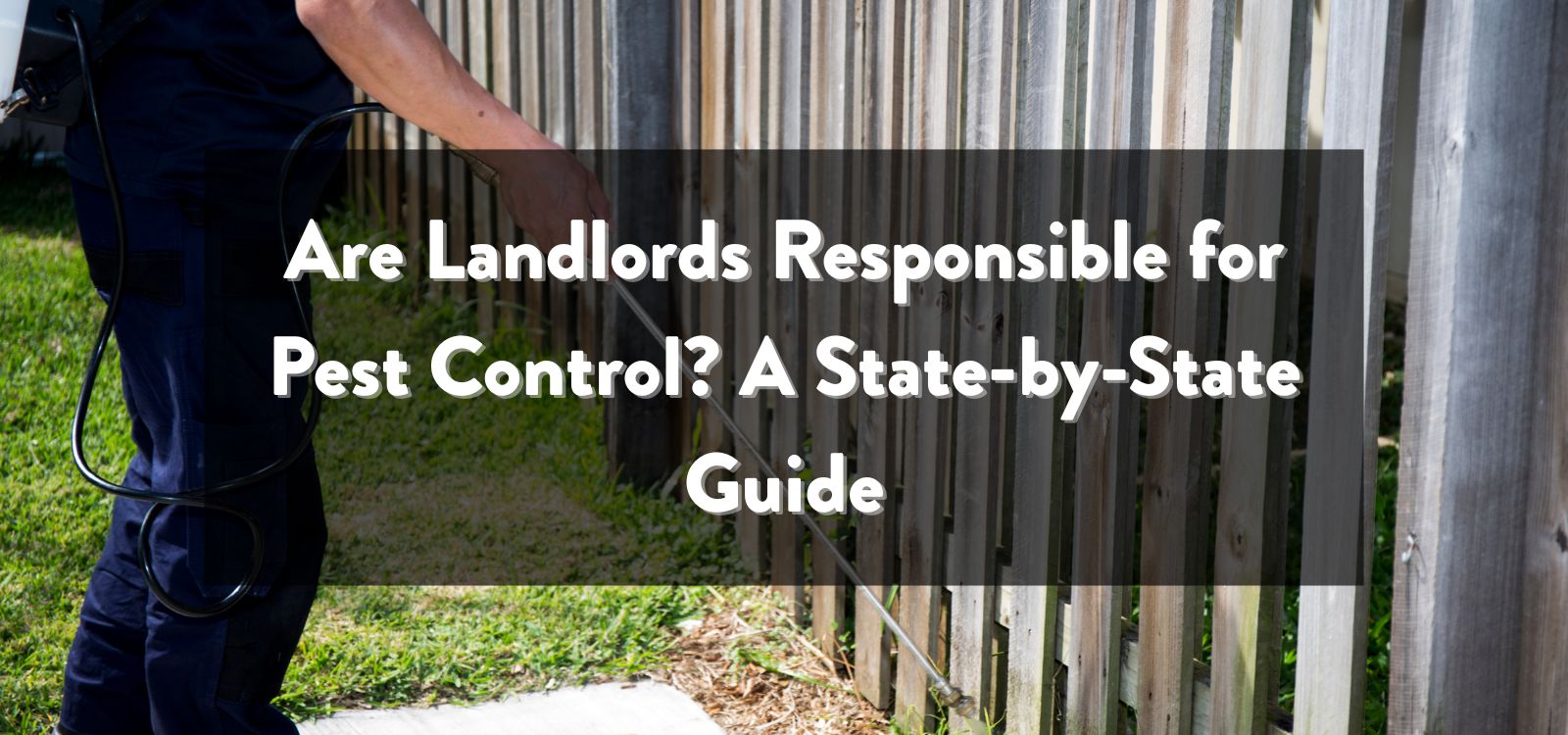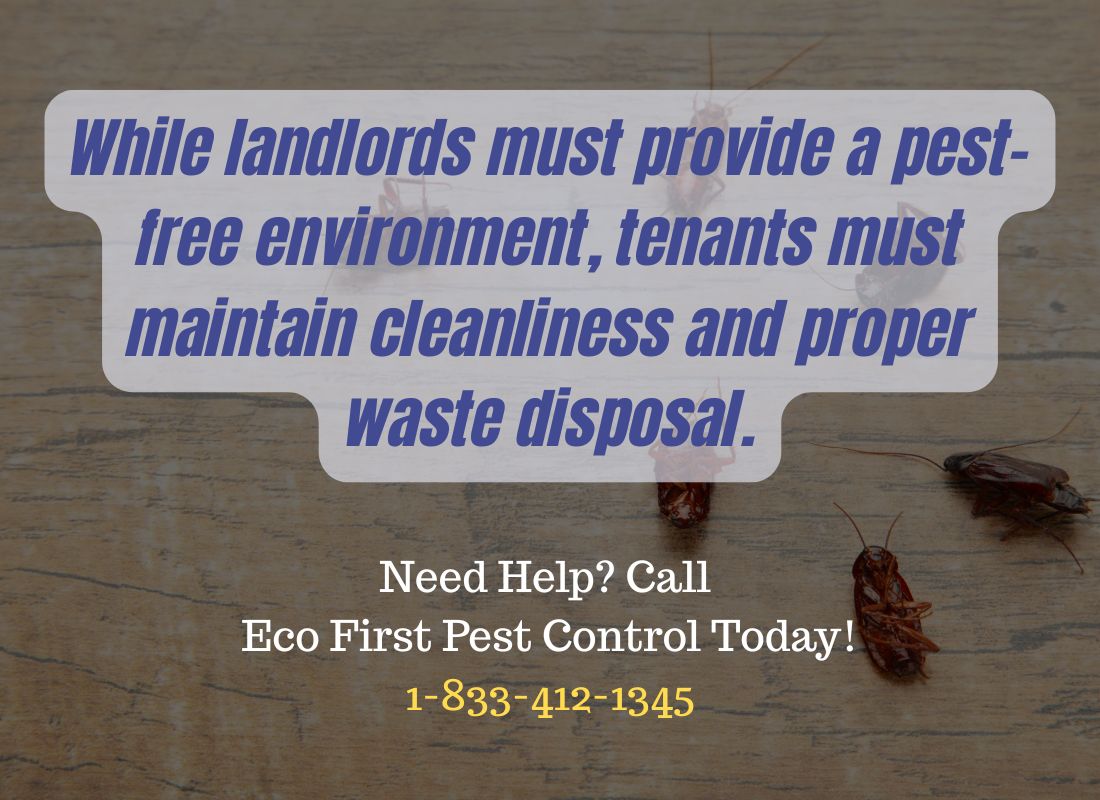
Are Landlords Responsible for Pest Control? A State-by-State Guide
Are Landlords Responsible for Pest Control?
Pest infestations can quickly turn a dream rental into a nightmare, leading to health issues, property damage, and tense landlord-tenant relationships. One common question is whether landlords are responsible for pest control. The answer depends on various factors, including local laws, lease agreements, and the nature of the infestation. This guide will walk you through the general responsibilities of landlords regarding pest control and break down the specific requirements by state.
Understanding Landlord Pest Control Responsibilities
Landlords are generally responsible for providing a habitable living environment, which includes keeping the property free from pests. However, the specifics can vary significantly depending on the location, type of rental property, and the cause of the infestation.
Why Pest Control is Important for Landlords
- Health and Safety: Pests can spread diseases and pose health risks to tenants.
- Property Damage: Rodents, termites, and other pests can cause costly damage to property.
- Legal Obligations: Failing to address pest issues can lead to legal disputes and financial penalties.
When Are Landlords Typically Responsible for Pest Control?
Landlords are usually responsible if:
- The infestation existed before the tenant moved in.
- The property has structural issues that allow pests to enter.
- Common areas in multi-unit buildings are infested.
- The infestation is due to natural surroundings (e.g., a wooded lot prone to mice).
When Are Tenants Responsible for Pest Control?
Tenants may be responsible if:
- They fail to maintain basic cleanliness.
- They introduce pests, such as bed bugs or fleas, into the property.
- They ignore routine maintenance, like garbage removal.
General Landlord and Tenant Pest Control Obligations

Both landlords and tenants share the responsibility of preventing infestations. While landlords must provide a pest-free environment initially, tenants must maintain cleanliness and proper waste disposal to avoid attracting pests. Here’s a basic breakdown:
Landlord Responsibilities:
- Routine pest inspections.
- Sealing cracks, holes, and other potential entry points.
- Providing professional pest control services as needed.
- Maintaining common areas in multi-unit buildings.
Tenant Responsibilities:
- Regular cleaning and garbage removal.
- Proper food storage.
- Notifying the landlord promptly if pests are discovered.
- Following any pest prevention guidelines included in the lease.
State-by-State Breakdown of Pest Control Responsibilities
California
Landlords in California must provide a habitable dwelling, free from pest infestations. If pests like rodents, cockroaches, or bed bugs are present, the landlord must address the issue unless the tenant caused the problem through poor housekeeping. Eco First Pest Control offers a range of pest control services, including termite control, that can help California landlords stay compliant.
New Jersey
New Jersey requires landlords to maintain safe and habitable conditions. This includes regular pest control for multi-unit buildings, especially if the infestation affects multiple tenants.
Pennsylvania
In Pennsylvania, landlords must handle infestations that are not caused by the tenant’s negligence. Multi-unit properties are particularly regulated, with landlords often required to maintain pest-free common areas.
Texas
Texas law mandates that landlords keep rental properties safe and habitable, which includes addressing pest infestations. However, tenants might be responsible if their actions directly caused the problem.
Florida
In Florida, landlords must address pest issues unless the lease explicitly shifts this responsibility to the tenant, which is rare. Given the humid climate, regular pest control is crucial.
Ohio
Ohio landlords are responsible for providing a habitable space, which includes pest control. However, tenants share the responsibility if their actions directly cause infestations.
New York (NY State)
Landlords in New York must keep properties free of rodents, cockroaches, and other pests. New York City, in particular, has strict pest control regulations.
Virginia
Virginia law requires landlords to provide a pest-free living environment at the start of a tenancy. Regular inspections and prompt action are critical to maintaining compliance.
Massachusetts
Massachusetts landlords must handle infestations unless the tenant's negligence caused the problem. This includes addressing common pests like mice and bed bugs.
Missouri to Indiana
Each state has its own set of requirements, but generally, landlords are responsible for ensuring the property is habitable and pest-free, with some exceptions for tenant-caused infestations.
Washington State
Washington requires landlords to handle pest control, especially in multi-family units, where infestations can quickly spread from one unit to another.
How to Prevent Pest Infestations
Both landlords and tenants can take proactive steps to prevent pest infestations. Proper maintenance and hygiene are key to avoiding costly extermination efforts and keeping the property in top shape.
Practical Pest Prevention Tips for Landlords
- Regular Inspections: Conduct routine inspections to catch early signs of infestations. This is especially important for properties in pest-prone areas.
- Seal Entry Points: Repair cracks, gaps, and holes in walls, floors, and foundations to prevent pests from entering.
- Landscaping Maintenance: Trim bushes and trees away from the building to reduce pathways for pests like ants and rodents.
- Moisture Control: Fix leaky pipes and ensure proper ventilation to reduce moisture, which attracts pests like termites and cockroaches.
- Waste Management: Provide proper trash disposal areas and ensure dumpsters are regularly emptied.
- Professional Pest Control Services: Partner with a reputable company like Eco First Pest Control for routine inspections and treatments.
Practical Pest Prevention Tips for Tenants
- Cleanliness: Regularly clean kitchens, bathrooms, and living areas to avoid attracting pests.
- Proper Food Storage: Use airtight containers for food and avoid leaving crumbs or spills on countertops.
- Garbage Disposal: Take out the trash regularly and keep garbage bins tightly closed.
- Pet Care: If you have pets, use flea and tick prevention methods. Check out flea and tick control for effective solutions.
- Communication: Notify your landlord immediately if you notice any signs of pests.
Legal Actions for Pest Problems
When pest issues arise, it’s essential for both landlords and tenants to understand their legal options. Ignoring a pest problem can lead to health risks, property damage, and costly legal battles.
When Tenants Can Take Legal Action
Tenants may have the right to take legal action if:
- The landlord fails to address a known pest problem within a reasonable timeframe.
- The infestation makes the property uninhabitable.
- The landlord violates local health and safety codes.
Steps Tenants Can Take
- Document the Problem: Take photos and keep written records of pest sightings, damage, and communication with the landlord.
- Send Written Notices: Notify the landlord in writing about the pest problem and request prompt action.
- File a Complaint: If the landlord fails to act, tenants can file a complaint with the local health department or housing authority.
- Withhold Rent or Repair and Deduct: In some states, tenants can withhold rent or pay for pest control themselves and deduct the cost from rent. However, this can be risky without proper legal guidance.
When Landlords Can Take Legal Action
Landlords can also take legal action if:
- The tenant caused the infestation through negligence or unclean living conditions.
- The tenant refuses to cooperate with pest control efforts.
Choosing the Right Pest Control Service
Selecting a reliable pest control company is crucial for maintaining property value and tenant satisfaction. Here are a few tips for choosing the right provider:
What to Look for in a Pest Control Service
- Comprehensive Services: Choose a company that offers a wide range of treatments, including bed bug control, termite control, and rodent control.
- Eco-Friendly Options: Consider companies like Eco First Pest Control that use environmentally safe methods.
- Experienced Technicians: Look for providers with certified, experienced technicians who understand local pest challenges.
- Regular Maintenance Plans: Opt for companies that offer ongoing maintenance to prevent future infestations.
- Transparent Pricing: Avoid hidden fees by choosing a company with clear, upfront pricing.
Summary
Understanding who is responsible for pest control can help landlords and tenants avoid costly disputes and maintain healthy living environments. While landlords are generally responsible for maintaining a pest-free property, tenants also play a crucial role in preventing infestations through cleanliness and prompt reporting. In most cases, the specific responsibilities depend on state laws, lease agreements, and the nature of the infestation.
For professional pest control solutions, consider partnering with a trusted provider like Eco First Pest Control, known for effective and eco-friendly pest management services.
FAQs
Q1: Are landlords responsible for pest control in California?
Yes, landlords in California must provide a habitable dwelling free from pests unless the tenant caused the problem.
Q2: Are landlords responsible for pest control in Florida?
Yes, unless the lease explicitly shifts this responsibility to the tenant, which is less common.
Q3: Can tenants withhold rent due to pest infestations?
In some states, tenants may have the right to withhold rent if the landlord fails to address a significant pest issue, but this should be done with caution.
Q4: Do landlords have to pay for bed bug treatment?
Yes, in most states, landlords must handle bed bug infestations unless the tenant introduced the pests through their actions.
Q5: How often should pest control be done in rental properties?
It depends on the location and pest risk, but many experts recommend quarterly inspections for optimal protection.